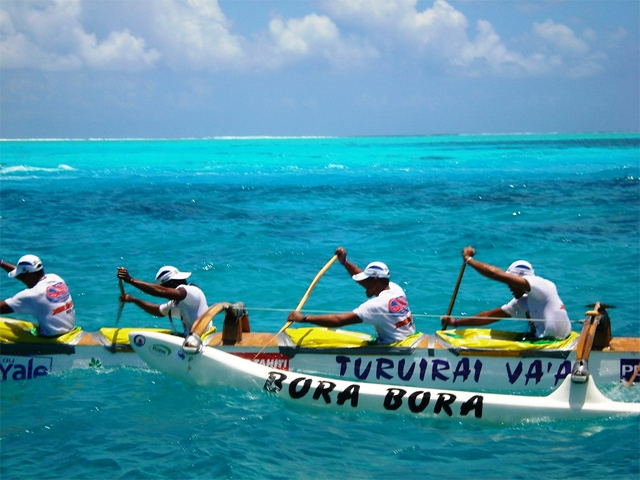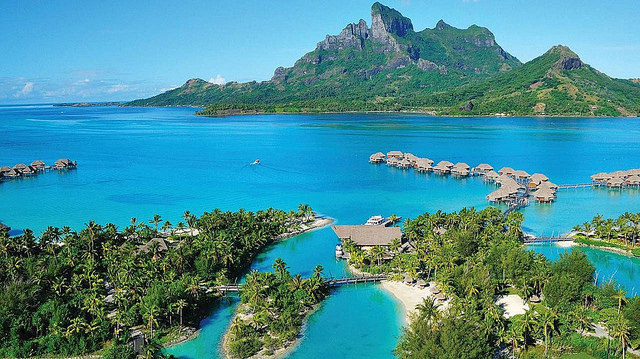A cooperative sporting event between a Tahitian team and one from Hawaii last week provided welcome relief from all the news about the Winter Olympics competitions in South Korea. A brief news story on February 20 by a Honolulu television station reported on a non-competitive canoe race in the water off Maui between teams from two luxury resort hotels, the Four Seasons Resort Bora Bora and the Four Seasons Resort Maui.

Apparently the hotel on Bora Bora, one of the major islands in the Society Islands, challenged the resort on Maui, in Hawaii, to a friendly competitive event dedicated to the spirit of cooperation and sharing of cultures rather than to just winning. The canoe “race” was held in the ocean off Maui last week as part of the Makahiki season, when Polynesians set aside time for play and sport. Makahiki season, a festive Hawaiian tradition, takes place from October or November through February or March. All warfare traditionally had to stop during Makahiki so people could celebrate the bounties of the land.
The television news crew interviewed Martin Dell from the Maui hotel, who said that the Four Seasons Bora Bora issued the challenge to the resort on Maui “to paddle together.” He indicated that they accepted the challenge in the spirit of the season, and it was great welcoming their “brothers from Tahiti.”

Eric Bensahin from the Bora Bora resort expressed his gratitude for being in Hawaii. It was more than just a race, he said—it was all about building connections between the different Polynesian peoples. With the video focusing on the different teams embracing on the beach at the end of the event, the narrator concluded that the two resorts hope that they can draw in other hotels and make it into an annual event, “all in the spirit of sharing and learning and cooperation.”
Oliver observed in his classic ethnography (1981) that canoe racing, which had been a traditional sport of the Tahitians, had been abandoned by the time he did his fieldwork there. In one of the villages in which he worked, it had been abandoned many years before while in the other it had ceased more recently. When he asked, in both communities, why they had abandoned it, the Tahitians responded, “Aita faufa‘a,” meaning it was without value (p.199). Oliver interpreted that to suggest that the sport had no monetary value to the Tahitians at that time.
It would appear from the news story last week about the event at Maui and from other recent reports that whatever hesitation the Tahitians may have had to participating in outrigger canoe racing 50 years ago, they have embraced it enthusiastically once again.